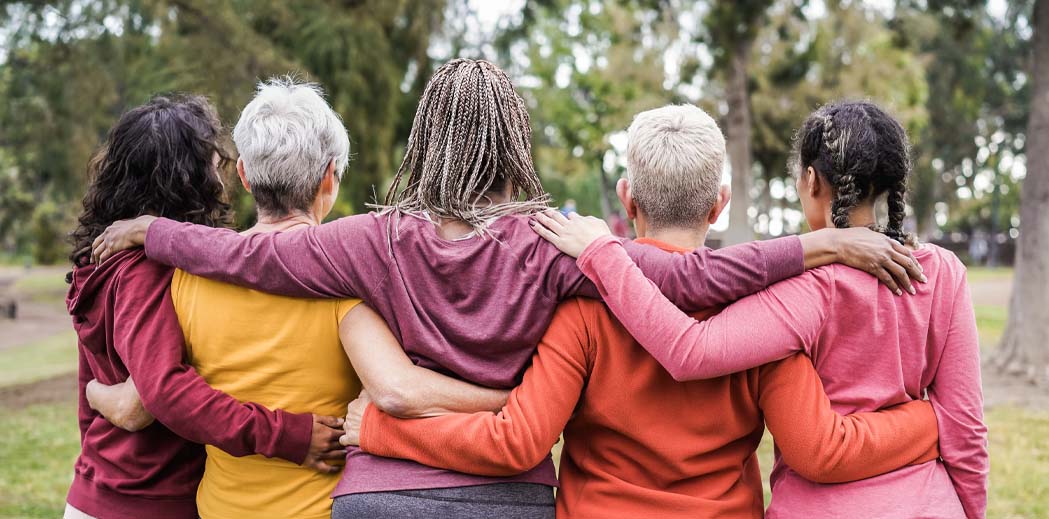
The Power of Community During Health Transformation
The word transformation gets a bad rap. When we think of change, we often think of the stressors it can trigger (as if we need more stress). It can throw off our schedules, leave us emotionally vulnerable and force us into life-altering situations that are very uncomfortable. But not all change is bad. Change must happen for all living things to grow. Transformation is essential, especially when it comes to your health.
There’s no right or wrong reason to pursue a health transformation. Health transformation is simply an investment in you1. It can mean getting a better night’s rest to reduce stress and help improve cognitive abilities or eating right, so your body has more optimal energy to use throughout the day. It’s transformative self-care. Giving your body what it needs so you can be your best.
But health transformation journeys aren’t always as straightforward as we would like them to be. It can drain us of energy, discourage our paths and intimidate our thoughts. At this point, we may need a community support system or group to lean on, and that’s perfectly fine. Therapy groups are amazing tools for seeking help. Community support groups aren’t that. In support groups, everyone has a common goal or interest.
Get some good support.
A good support system is like having a personal cheerleading squad. It feels great to hear encouragement from the sidelines, especially when we are going through life changes. They become your accountability partners, helping you stay on track while working through your personal goals2. Regardless of your level of motivation, it’s your support community that keeps you going, and it can be anyone who understands your aspirations. A group of friends you’ve known since high school, co-workers, a Peloton Mom’s group, or someone you’ve just met. Whether you realize it or not, these incredible individuals will play a crucial part in your transformation journey. While yes, you are more than capable of encouraging yourself, sometimes that added energy from people who ‘get us’ is the push we need to run across the finish line.
Community is important because humans fare better in life when they receive support. That’s not us saying it. It’s all research. Studies have found that people with a high quality or quantity of social networks have better overall health and longevity3.The type of support each person requires is based solely on preference and can occur regardless of age3.
Fantastic social groups…and how to find one.
Health transformation can be an exciting but isolating experience. Not everyone will understand your journey. Isolation can cause you to feel alone, unmotivated, or even stuck. One of the great things about our social media-driven society is that technology has made it easier to connect with the world. Having a support group that understands your experience is essential. A non-profit, local clinic, or organization can run this group4. Although we should always be aware of our relationships, subscribing to a community that best fits you is done intentionally, giving you more control over the type of support you need and want.
Your support group preference will depend heavily on your circumstances. If you are trying to lose weight, it probably wouldn’t be in your best interest to join a group of people that want to gain weight. Not that one group is better, but it doesn’t align with your interests. Maybe it’s not the group, and it’s the location you disagree with. You may be an introvert that likes meeting in a more familiar setting. Maybe work and personal obligations have you on a strict schedule, and you aren’t able to meet in person at a given time. It should be all about what is best for you.
Finding the right community for you can be trial and error but stay positive! You will find your tribe. Begin with people you know and trust to point you in the right direction, like a physician or a reputable non-profit website4.These resources may be located online, in-person, or both4. Make sure that you’re surrounded by individuals who understand your goals and can support you through your journey.
Supportive communities have BIG benefits.
The largest benefit of having a supportive community is that you don’t feel alone. It’s a great way to meet like-minded people. Their support will become a positive reinforcement. Community reduces isolation and can motivate you to continue your journey and create ownership of what you seek to accomplish.
How to create your own support community.
Creating a supportive online or in-person community may take work, but if you can coordinate a fantasy football league, or organize your sister’s baby shower, you have what it takes to start one. Here are a few tips on how to create a support group:
1. Know what your group is about and who would be interested.
Before starting your community, you have to know what the meeting will be about and if anyone will be interested in the topic.
2. Spell out the specifics of your group.
After you’ve figured out who is interested in your group, the next task is determining what kind of group it will be. Will it be a monthly meet-up? Weekly? Will it be a support group, a discussion group, or a professionally led group? We shall see.
3. Here’s a big one. Where will it be?
Microsoft Teams, Google Duo, Skype, and Zoom. Technology has now made connecting more convenient, especially for people with hectic schedules and long distances between them. The technology that you use must be the most accessible for the group. Despite its popularity, convenience isn’t always desirable for everyone. Some support group members may find that meeting in person offers them fewer distractions than they experience at home. What about a hybrid meeting arrangement? Half technology, half in person. It may be beneficial for some; however, it also has the potential to split your group5. Getting everyone on the same meeting schedule can be difficult. Some people can meet in person, while others can’t. It all depends on what is best for your group.
4. Network!
Post your support group’s info on social media and share it with others. Keeping your support group to yourself is a no-go. Social media is the fastest way to spread the word. Not into social media? Email can get the job done. You can use your current contacts to bring awareness to your community. What if you want to add a more personable approach to your marketing strategy? Passing out flyers or different memorable materials will work. Remember, you may not directly know the people that have interest, but your friends might.
5. Okay, what are we talking about?
What will be discussed in the group? Since each meeting has a designated time frame, every moment is precious. You should decide how you will spend your time. You’re not micromanaging necessarily; it’s being efficient not only with your time but the time of others. It also helps the group to flow.
Staying connected and motivated in your community
Make it a point to keep in touch with members of your group. A friendly check-in or a short chat via phone, email, or social media will do. It’s just to say hi. Be upfront about your needs, wants, and concerns while allowing others to make suggestions and address issues. It’s nice to feel heard6. If you want to go the extra mile, be the chairman or chairwoman of activities outside of the support team setting. It’s great to get people out of their element and know them in a different context.
Sharing is caring, especially during your health transformation journey.
Never underestimate the power of your words. To you, it may seem like a gained experience, but to someone else, it’s gained knowledge. Sharing your story can inspire others to tell their truth, encouraging an endless cycle of helpful information. Communicating your views can be therapeutic for you and others. Speaking your mind allows you to express your thoughts and concerns, setting the tone for a warm, collaborative environment and a wildly successful support group.
Sources
1 Health transformation: How to know when you are ready. South California Hospital Culver City
2 What is an accountability partner. Masterclass
3 Social and Emotion Support and its Implications for health. National Library of Medicine
4 Support groups: Make connections, get help. Mayo Clinic
5 Tips for starting a support or discussion group. University of buffalo School of Social work
6 Social Support: Getting and Staying Connected. Mental Health America













.jpg)





